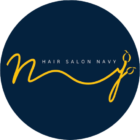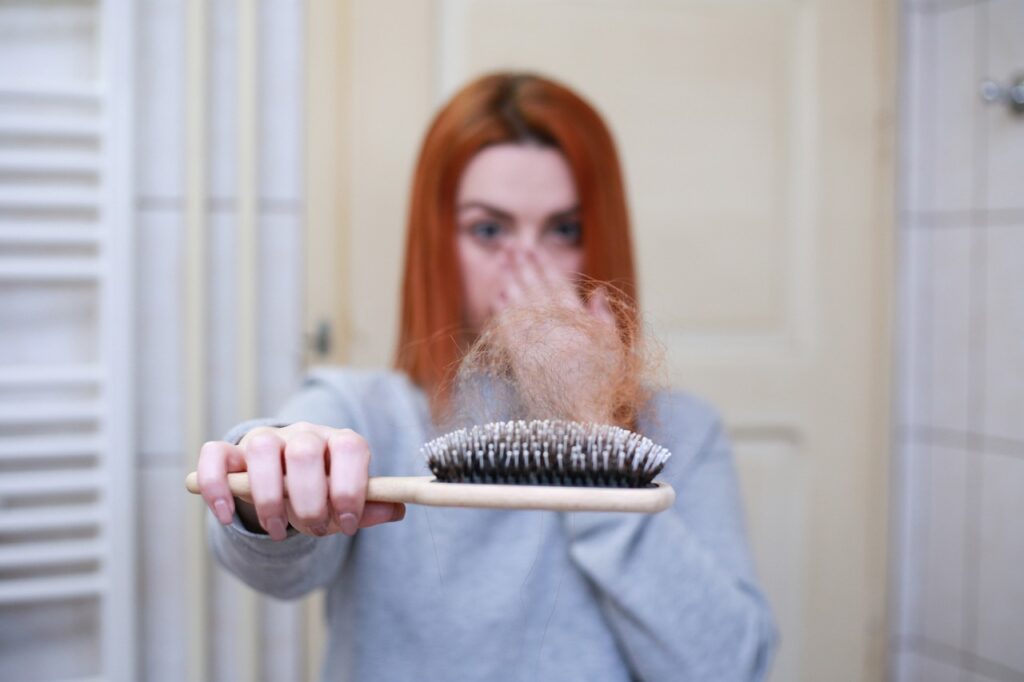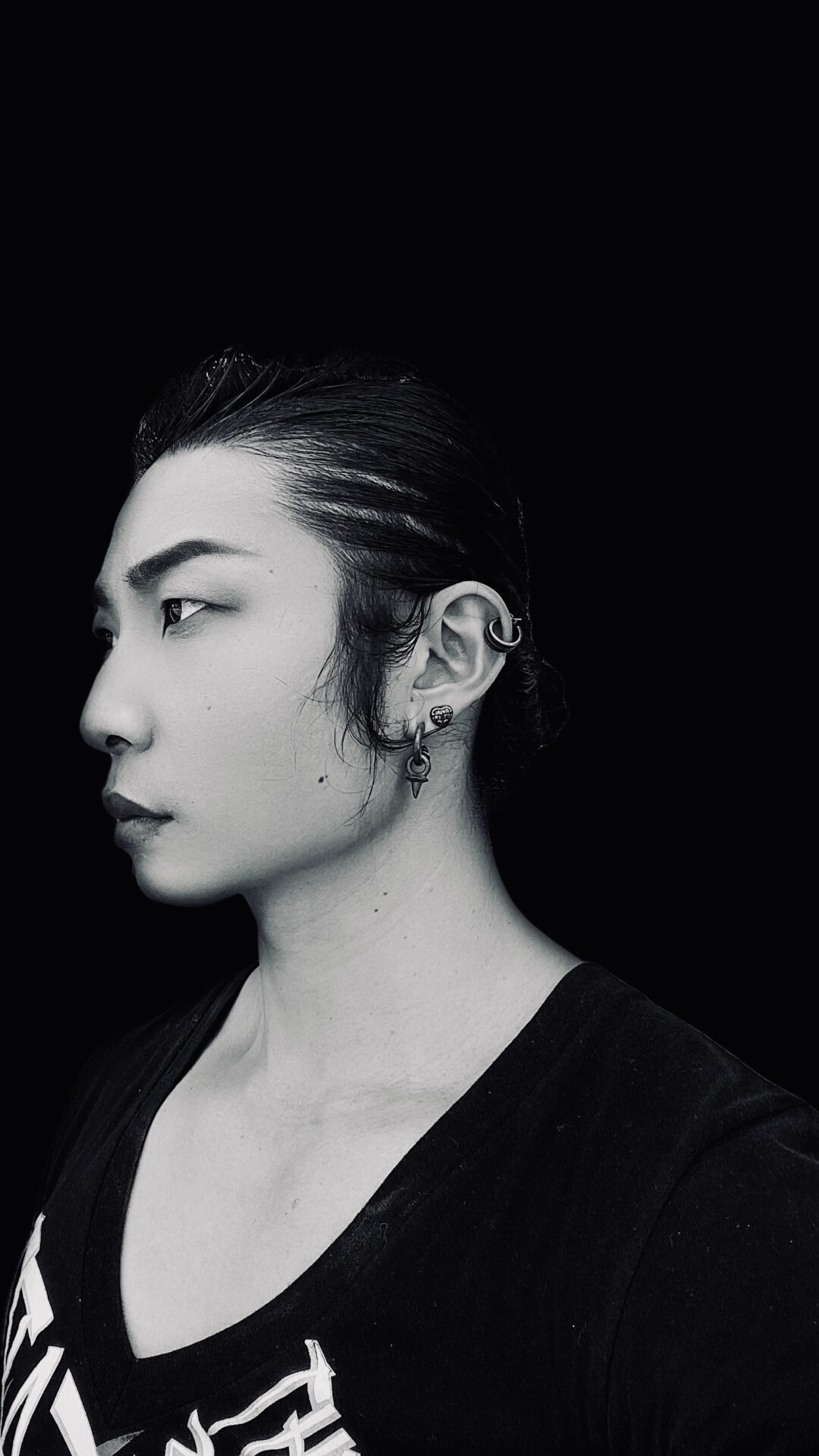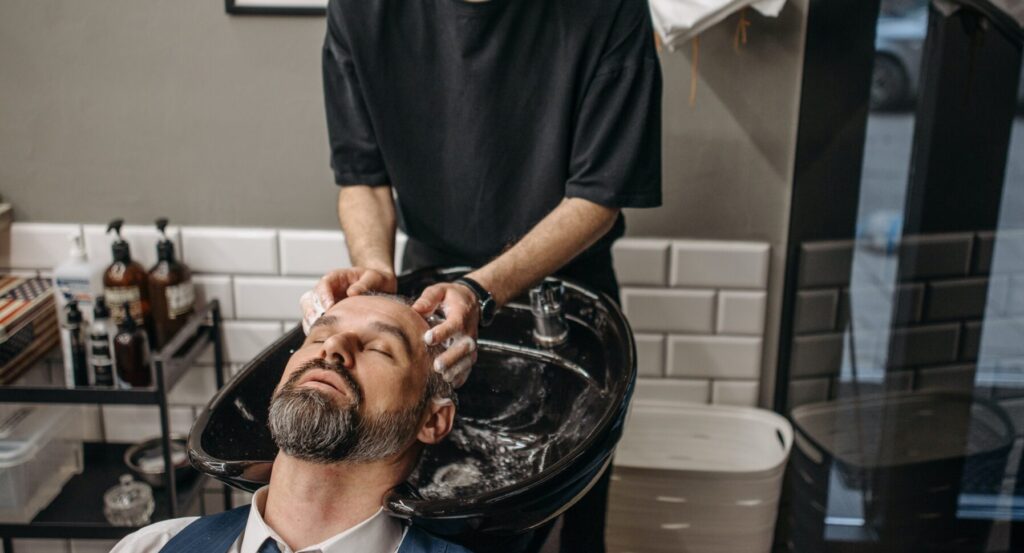Table of Contents
1. Understanding the Causes of Hair Loss
a. Genetics and Hair Loss:
Our genes play a significant role in determining whether we will experience hair loss. If you have a family history of hair loss, particularly from your parents or grandparents, you may be more prone to it. Understanding your genetic predisposition can help you better manage and address hair loss concerns.
b. Hormonal Changes and Hair Loss:
Hormonal changes can trigger hair loss in both men and women. For example, in men, an excess of dihydrotestosterone (DHT), a hormone derived from testosterone, can lead to male pattern baldness. In women, hormonal imbalances during pregnancy, menopause, or conditions like polycystic ovary syndrome (PCOS) can cause hair thinning and shedding.
c. Nutritional Deficiencies and Hair Loss:
A lack of essential nutrients can affect hair health and contribute to hair loss. Insufficient intake of vitamins like biotin, vitamin D, and minerals like iron and zinc can weaken hair follicles, leading to hair thinning and breakage. Maintaining a balanced diet with adequate nutrition is important for healthy hair growth.
d. Physical and Emotional Stressors:
Physical and emotional stress can disrupt the hair growth cycle, leading to excessive shedding or hair loss. Traumatic events, major surgeries, severe illnesses, or ongoing stress can trigger a condition called telogen effluvium, where a large number of hair follicles enter a resting phase and eventually shed. Managing stress and finding healthy coping mechanisms are crucial for maintaining healthy hair.

e. Hairstyling Practices and Hair Loss:
Certain hairstyling practices, especially those that pull tightly on the hair, can cause a type of hair loss called traction alopecia. Examples include tight ponytails, braids, or wearing hair extensions. Heat styling tools like flat irons and curling irons, when used excessively or at high temperatures, can also damage the hair shaft and lead to breakage.
f. Underlying Medical Conditions:
Various medical conditions can contribute to hair loss. Conditions like thyroid disorders, autoimmune diseases (such as alopecia areata), scalp infections, or underlying scalp conditions like seborrheic dermatitis can affect hair follicles and lead to hair loss. Seeking medical advice and proper treatment for these conditions can help manage hair loss.
g. Medications and Hair Loss:
Certain medications and treatments may have hair loss as a side effect. Examples include chemotherapy drugs, certain antidepressants, blood thinners, and medications used for acne or high blood pressure. If you notice hair loss while taking any medication, it’s important to consult your healthcare provider for possible alternatives or solutions.
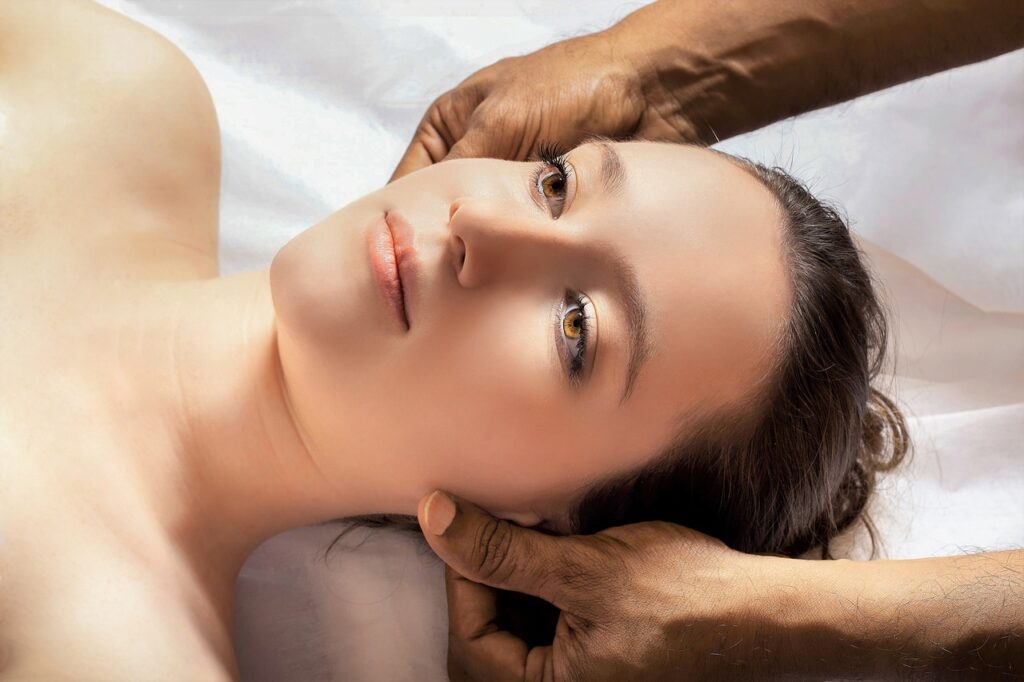
2. Expert Advice on Head Spa Treatments
Head spa treatments are relaxing and beneficial for promoting hair growth and keeping your scalp healthy. Jason provides expert tips on different head spa techniques like scalp massages, steam treatments, and exfoliation. These techniques can stimulate hair growth and improve the condition of your scalp.
3. Choosing the Right Shampoo for Hair Loss
Finding the right shampoo is important if you’re dealing with hair loss. These key ingredients can be found in various hair care products, such as shampoos, conditioners, serums, and supplements.
Biotin: Biotin, also known as vitamin B7, is essential for healthy hair growth. It helps strengthen the hair shaft and promotes thicker, fuller hair.
Caffeine: Caffeine has been found to stimulate hair follicles and promote hair growth. It can help prolong the hair growth phase and counteract the effects of DHT, a hormone associated with hair loss.
Ketoconazole: Ketoconazole is an antifungal ingredient commonly used in medicated shampoos. It has been shown to have anti-inflammatory properties and may help reduce scalp inflammation, which can contribute to hair loss.
Saw Palmetto: Saw palmetto extract is derived from the berries of the saw palmetto plant. It is believed to inhibit the conversion of testosterone into DHT, which can help prevent hair loss caused by DHT sensitivity.
Minoxidil: Minoxidil is an FDA-approved medication used to treat hair loss. It works by stimulating hair follicles and prolonging the growth phase of the hair cycle. Minoxidil is available in both over-the-counter and prescription strengths.
Finasteride: Finasteride is an oral medication that is prescribed for male pattern baldness. It works by inhibiting the conversion of testosterone into DHT, thus reducing DHT levels and helping to prevent further hair loss.
Niacin: Niacin, also known as vitamin B3, promotes blood circulation to the scalp, which can enhance hair growth. It helps nourish hair follicles and encourages the transport of essential nutrients to the hair roots.
Zinc: Zinc is an important mineral for maintaining healthy hair. It helps regulate hormone levels, supports the immune system, and aids in the repair and growth of hair tissues.
When choosing products for hair loss, look for those that contain one or more of these ingredients to support hair growth and improve overall hair health.
4. Innovative Hair Loss Medicines and Treatments
Minoxidil: Minoxidil, available in topical solution or foam form, is an FDA-approved medication used to treat androgenetic alopecia, commonly known as male or female pattern baldness. It is applied directly to the scalp and helps stimulate hair growth by extending the growth phase of hair follicles.
Finasteride: Finasteride is an oral prescription medication primarily used for male pattern baldness. It works by inhibiting the conversion of testosterone into dihydrotestosterone (DHT), the hormone responsible for shrinking hair follicles. By reducing DHT levels, finasteride can slow down hair loss and promote hair regrowth.
Platelet-Rich Plasma (PRP) Therapy: PRP therapy involves extracting a small amount of the patient’s blood, processing it to concentrate the platelets, and injecting the platelet-rich plasma into the scalp. Platelets contain growth factors that stimulate hair follicles, promoting hair growth and thickness. PRP therapy is a non-surgical and minimally invasive procedure.
Low-Level Laser Therapy (LLLT): LLLT utilizes laser devices or combs emitting low-level laser light to stimulate hair follicles. This non-invasive treatment helps improve blood circulation in the scalp, energizes hair follicles, and encourages hair regrowth. LLLT can be performed at home with handheld devices or in specialized clinics.
Hair Transplantation: Hair transplantation involves surgically removing hair follicles from areas of the scalp with healthy hair growth (donor site) and implanting them into areas with thinning or balding hair (recipient site). This procedure allows for the redistribution of hair follicles to achieve a more even and natural-looking hairline.
Scalp Micropigmentation (SMP): SMP is a non-surgical cosmetic procedure that involves tattooing the scalp with pigments to create the appearance of a closely shaved head or denser hair. It can effectively camouflage areas of hair loss by simulating the look of hair follicles.
Nutraceuticals and Supplements: Nutraceuticals and supplements designed specifically for hair health can provide essential vitamins, minerals, and other nutrients that support hair growth and minimize hair loss. These products often contain ingredients like biotin, vitamins, minerals, and antioxidants to nourish the hair follicles from within.
5. Harnessing the Power of Essential Oils
Essential oils have become popular for their potential benefits in promoting hair growth and reducing hair loss. Here are some essential oils known for their beneficial properties:
Rosemary Oil: Rosemary oil is believed to stimulate hair follicles, improve circulation, and promote hair growth. It may also help prevent premature graying and strengthen the hair strands.
Peppermint Oil: Peppermint oil has a cooling sensation and can help improve blood flow to the scalp. It may assist in promoting hair growth by nourishing hair follicles and reducing inflammation.
Lavender Oil: Lavender oil is known for its calming and soothing effects, and it may also promote hair growth. It can help reduce stress and anxiety, which can contribute to hair loss in some cases.
Cedarwood Oil: Cedarwood oil has been suggested to have a balancing effect on oil production in the scalp. By reducing excess oiliness, it may help create a healthier environment for hair growth.
Thyme Oil: Thyme oil has antimicrobial properties that can benefit the scalp. It may help prevent scalp infections, dandruff, and inflammation, thus supporting healthy hair growth.
Tea Tree Oil: Tea tree oil has antimicrobial and antifungal properties, making it useful for maintaining a healthy scalp. It can help alleviate scalp conditions like dandruff and support optimal conditions for hair growth.
Peppermint Oil: Peppermint oil has a cooling sensation and can help improve blood flow to the scalp. It may assist in promoting hair growth by nourishing hair follicles and reducing inflammation.
6. The Role of Nutritional Supplements and Vitamins
Nutritional supplements and vitamins play a significant role in supporting hair health and promoting hair growth:
Biotin (Vitamin B7): Biotin is often referred to as the “hair growth vitamin.” It helps in the production of keratin, a protein that forms the structure of hair strands. Biotin deficiency can lead to brittle hair and hair loss, so supplementing with biotin can support healthy hair growth.
Vitamin D: Vitamin D is important for hair follicle cycling and function. It helps create new hair follicles and may play a role in hair regrowth. Vitamin D deficiency has been linked to hair loss, so maintaining adequate levels is essential.
Iron: Iron deficiency is a common cause of hair loss, especially in women. Iron is necessary for proper oxygen transportation to the hair follicles, promoting healthy hair growth. Supplementing with iron can help address hair loss associated with iron deficiency.
Zinc: Zinc plays a vital role in hair tissue growth and repair. It helps maintain the oil glands around hair follicles, supports the immune system, and aids in DNA synthesis. Zinc deficiency can lead to hair loss, making it important to ensure sufficient intake of this mineral.
Vitamin E: Vitamin E is an antioxidant that helps protect the hair follicles from oxidative stress and damage. It promotes blood circulation to the scalp, which is crucial for delivering nutrients to the hair follicles. Including vitamin E in your diet or as a supplement can support overall hair health.
Omega-3 Fatty Acids: Omega-3 fatty acids, such as those found in fish oil, have anti-inflammatory properties that can benefit the scalp and hair follicles. They help nourish the hair shaft and support a healthy scalp environment for optimal hair growth.
Multivitamins: Taking a comprehensive multivitamin can provide a range of essential nutrients for overall health, including those beneficial for hair growth. Look for multivitamins specifically formulated for hair, skin, and nails, as they often contain a combination of vitamins, minerals, and other nutrients known to support hair health.
7. Hair Vials and Serums
Hair vials and serums offer targeted nutrient delivery, scalp nourishment, and hydration. They strengthen hair follicles, protect against environmental damage, and improve hair texture. Using them regularly can boost confidence and enhance hair appearance. Consulting with a professional can provide personalized recommendations.
In Conclusion
Hope these topics can help you. It’s packed with expert tips, cutting-edge treatments, and natural remedies like essential oils and supplements that can help stimulate hair growth. Remember, you’re not alone in this journey, and with the right information and approach, you can take control of your hair health and boost your confidence. So, get ready to say goodbye to hair loss woes and hello to a beautiful, thriving mane!
JASON has years of experience in haircut and scalp treatment. He seeks to help his clients learn more about hair and scalp care tips. When he’s not cutting hair, he’s passionate about bodybuilding and loves to read in his free time.
Contact Jason
Get in touch and let me know how I can help.
Thank you!
I’ll respond as soon as poosible.
